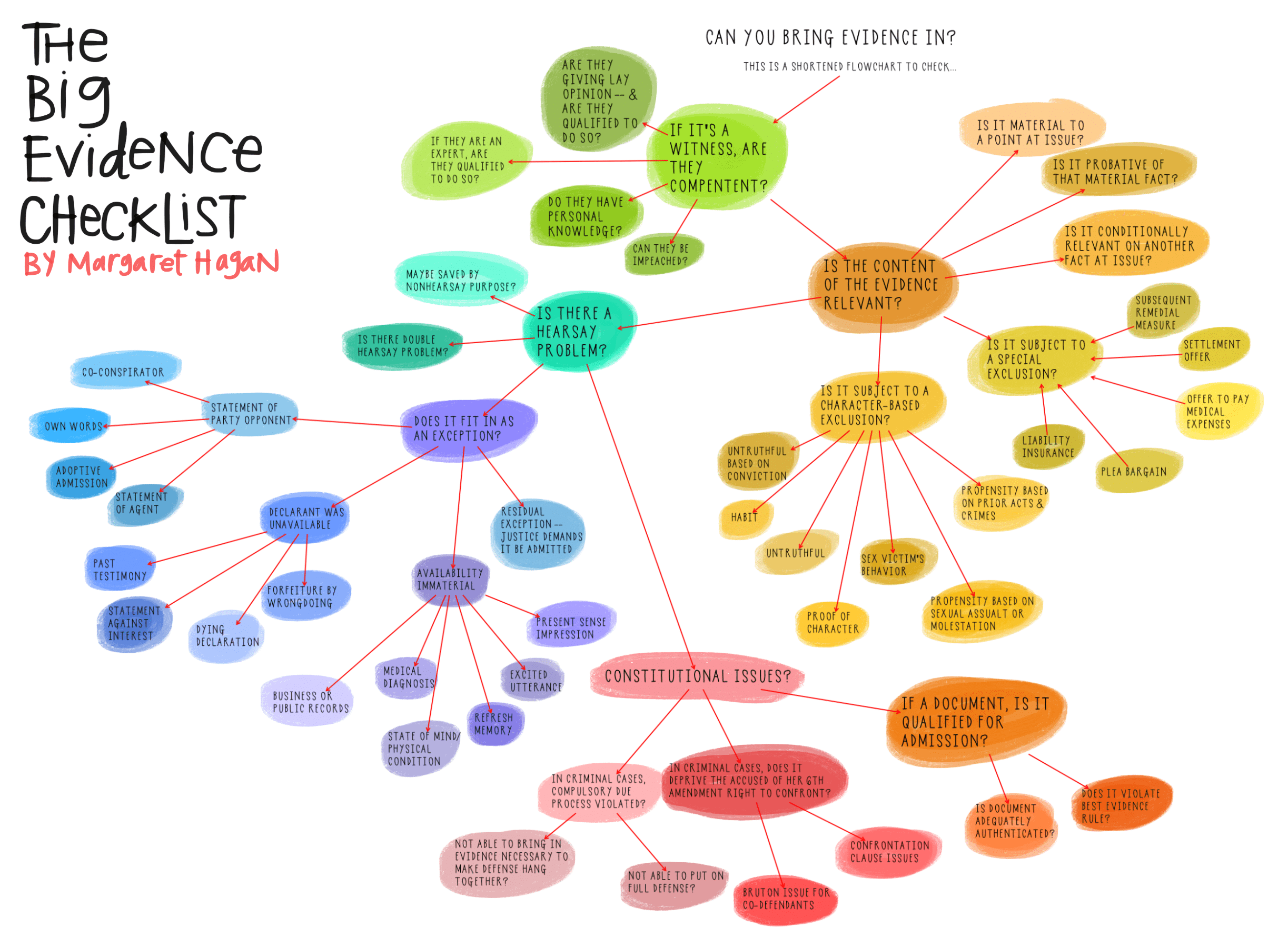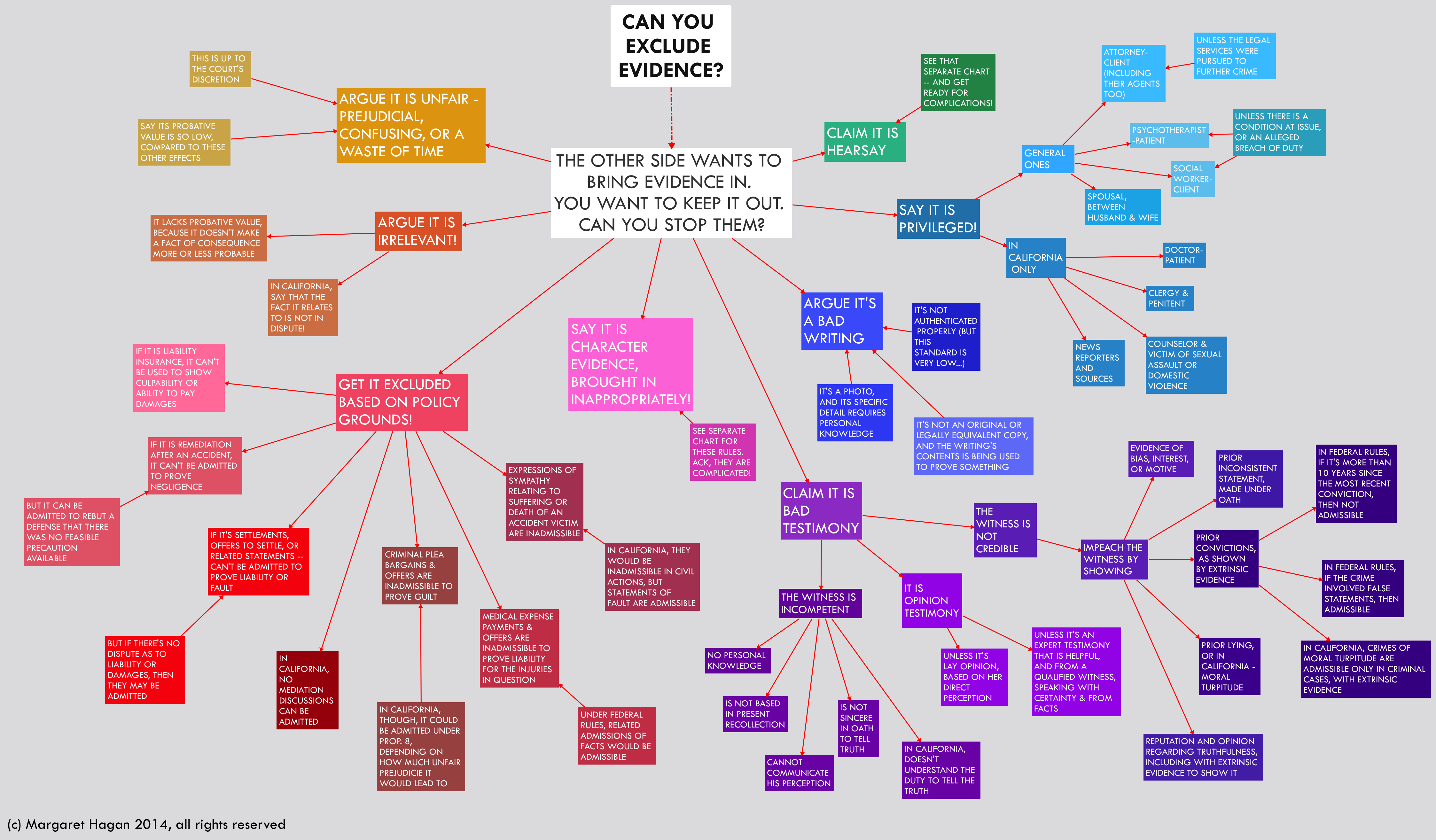Lozman v. City of Riviera Beach, Florida (2018)
1st Amendment – Retaliation by Government Entity
Proceed with Lawsuit Against Government!
In the decision of Lozman v. Riviera Beach, Florida, 585 US ___ (2018), the U.S. Supreme Court ruled 8-1 that a plaintiff alleging that a government entity arrested him or her as part of an overall pattern of retaliation against the plaintiff can proceed with a retaliation lawsuit even if there was probable cause for an arrest.
Lozman arrested at city council meeting when he would not quit speaking
Fane Lozman was a frequent critic of city officials in Riviera Beach, Florida, for their policies on eminent domain. Lozman became a resident of the city after he docked his floating home on city waterfront property. Lozman filed a lawsuit against the city for violating an open meetings law when city officials met with developers behind closed doors.
In November 2006, Lozman went to a city council meeting and spoke during the public comment period. He began to criticize the recent arrest of a former county official when a councilmember ordered him to stop uttering those remarks. After Lozman continued, the councilmember ordered a police officer to arrest Lozman.
The officer arrested Lozman when he refused to quit talking and leave the podium. The officer handcuffed Lozman and escorted him from the building. Lozman contended that the city retaliated against him by arresting him for his open-meetings lawsuit against the city and prior public criticisms of city officials.
Lozman filed suit alleging retaliation
Lozman was arrested for disorderly conduct. A prosecutor later dropped the charges. Even still, Lozman filed a section 1983 civil rights lawsuit, alleging retaliation. The city countered that the retaliation lawsuit should fail because there was probable cause to arrest Lozman.
A federal district court determined that to prevail, Lozman would have to show that the arresting officer was motived by animus against Lozman and that the officer lacked probable cause for the arrest. A jury ruled for the city.
On appeal, the 11th U.S. Circuit Court of Appeals determined that the city erred when it reasoned that the officer himself must harbor a retaliatory animus but determined any such error harmless because the jury determined the arrest was backed by probable cause.
Case dealt with whether retaliation claims can proceed if there is ‘probable cause’ for arrest
Lozman appealed to the U.S. Supreme Court, arguing that probable cause is not a bar to a retaliatory arrest claim. Lozman urged the Court to adopt the rule from Mt. Healthy v. Doyle (1977), a decision in which the Court allowed a public employee’s First Amendment lawsuit to proceed when the government reason for punishing the employee was a motivating or substantial factor. As applied to a retaliation claim, Lozman argued that a retaliation plaintiff must show that the retaliation was a motivating or substantial factor and a defendant can prevail only by showing that it would have made the same decision to arrest without respect to retaliation.
The city countered that, pursuant to the Court’s decision in Hartman v. Moore (2006), probable cause for arrest is an absolute bar just as the Court determined it was in Hartman for retaliatory prosecution cases.
Court said retaliation case could proceed, Lozman’s First Amendment rights were implicated
Writing for the majority, Justice Anthony Kennedy reasoned that probable cause should not be a bar for those retaliation cases in which the plaintiff alleges that a governmental entity engaged in a pattern of retaliation against a plaintiff for protected speech or petitioning.
“The fact that Lozman must prove the existence and enforcement of an official policy motivated by retaliation separates Lozman’s claim from the typical retaliatory arrest claim,” Kennedy wrote.
Kennedy wrote that “there is a risk that some police officers may exploit the arrest power as a means of suppressing speech.”
Kennedy concluded that “Lozman need not prove the absence of probable cause to maintain a claim of retaliatory arrest against the City.” Instead, “the Mt. Healthy test provides the correct standard for assessing a retaliatory arrest claim.”
Kennedy also recognized that Lozman’s petition rights were implicated, writing that Lozman claimed he faced retaliation after he filed a lawsuit. “Lozman’s speech is high in the hierarchy of First Amendment values,” he added.
Justice Clarence Thomas filed a solitary dissent. “Instead of dreaming up our own rule, I would have answered the question presented and held that plaintiffs must plead and prove a lack of probable cause as an element of a First Amendment retaliatory arrest claim,” he wrote.
David L. Hudson, Jr. is a law professor at Belmont who publishes widely on First Amendment topics. He is the author of a 12-lecture audio course on the First Amendment entitled Freedom of Speech: Understanding the First Amendment (Now You Know Media, 2018). He also is the author of many First Amendment books, including The First Amendment: Freedom of Speech (Thomson Reuters, 2012) and Freedom of Speech: Documents Decoded (ABC-CLIO, 2017). This article was originally published in 2009. By David L. Hudson Jr. cited https://www.mtsu.edu:8443/first-amendment/article/1600/lozman-v-city-of-riviera-beach-florida
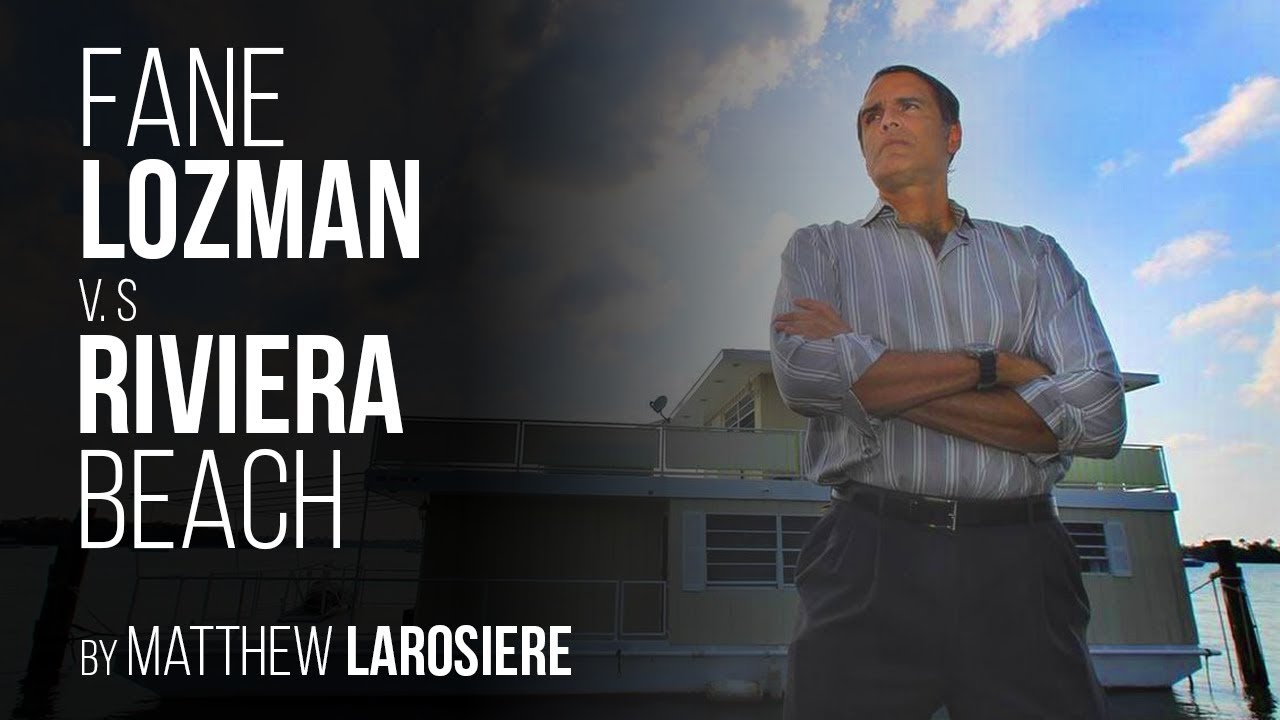
Lozman v. City of Riviera Beach Supreme Court considers free speech vs. retaliatory arrests
In Lozman v. City of Riviera Beach, 585 U.S. ___ (2018), the Supreme Court ruled that the existence of probable cause for a city police officer’s arrest of Lozman did not bar him from bringing a retaliation claim under 42 U.S.C.
arresting someone in retaliation for the exercise of free speech rights is sufficient to chill speech as an understatement.
Watch the SHORT VDIEO below on How it all started in 2017
and this is how it ended with him $875,000 dollars richer! Crimes erased and the City put in their place! helping all others around our country as this is a SCOTUS ruling!
MIAMI (AP) — A Florida man who already won an improbable victory before the U.S. Supreme Court is hoping legal lightning strikes twice in a First Amendment case pitting police powers of arrest against the right to speak freely and protest.
Oral arguments are scheduled Tuesday in Fane Lozman’s lawsuit against the City of Riviera Beach, which is just north of West Palm Beach. Lozman contends he was wrongly prevented from speaking at a 2006 city council meeting through an arrest on bogus charges of disorderly conduct and resisting arrest that were later dropped.
The officer apparently concluded that Lozman was about to create a disturbance, so that was enough probable cause, according to court papers.
“There’s nothing to preclude elected officials and police to do this anytime they want when they don’t like the content of someone’s speech. There’s no accountability,” Lozman said in an interview. “It intimidates the public and they say it’s not worth participating in our democracy.”
Lozman, 56, in 2013 won a Supreme Court decision in a related case on whether the floating home he had docked at a Riviera Beach marina qualified as a vessel or a dwelling, like a home on land. The justices decided then that not everything that floats is a boat.
One of his attorneys, Kerri L. Barsh of the Stanford Law School Supreme Court Litigation Clinic, said the court’s decision will have impact on much of society, from people who march in protests to journalists trying to cover controversial events involving law enforcement.
“The ruling in this case will have broad implications in how governments balance probable cause for an arrest with free speech rights,” Barsh said. “The inability to engage in protected speech without retaliation has a chilling effect on citizens’ constitutional rights to criticize their government and engage in other protected expression.”
“The probable cause element permits officers to make arrests in such circumstances without fear of having to later litigate whether their real motivation was preventing a massacre or punishing speech,” the city’s attorneys argue in court papers.
Lozman was arrested at the 2006 city council meeting as he was speaking critically about government corruption, part of his opposition to a then-planned redevelopment at a marina where he had a floating home. Lozman was never brought to trial on the charges; prosecutors dropped them after concluding there was no possibility of a conviction.
After Lozman sued for retaliatory arrest, a jury sided with the city after a trial and an appeals court upheld that verdict. Lozman, however, took the case to the Supreme Court, arguing in part that U.S. appeals courts across the country are split on the issue of probable cause arrests versus free speech. Last November the high court took the case.
The Supreme Court’s 2013 ruling on Lozman’s floating home, which was seized and destroyed by Rivera Beach, was seen by legal experts as an important precedent in maritime law for thousands of people who make their homes on the water as well as floating businesses such as casinos. Different laws apply to vessels and homes, with homeowners receiving more protection from seizure in Florida and other states.
The latest case will be the culmination of Lozman’s 12-year, costly fight against city hall. The former U.S. Marine Corps officer and wealthy financial trader said he simply refused to back down.
“The city initiated the eviction action. I defended it. It’s not like I’m looking to get in these fights,” Lozman said. “The city brought the fight to me. They just ran into a guy who is not going to run and hide in a corner, but is going to fight back.” source
Facts of the case
Fane Lozman was a resident of the City of Riviera Beach (the “City”), where he was a vocal critic of the City’s plan to utilize eminent domain to redevelop the Riviera Beach Marina. After the redevelopment plan was approved, Lozman filed suit against the City under the Florida Sunshine Law, seeking to invalidate the City’s approval of the plan due to insufficient public notice for the emergency meeting during which the plan had been approved. The city council met in a closed session to discuss the lawsuit, and the meeting transcript seemed to reflect councilmembers suggesting that the City should employ intimidation tactics in fighting Lozman’s claim.
On November 15, 2006, Lozman attended a regularly scheduled city council meeting and was granted permission to speak during the non-agenda public comment portion of the meeting. When it was his turn to speak, he attempted to begin discussing corruption in local government, and a councilmember instructed him to discontinue his comments on that topic. Lozman repeatedly ignored the councilmember’s instructions, and she ultimately instructed a City police officer to arrest Lozman.
Lozman was charged with, inter alia, disturbing a lawful assembly. The prosecuting attorney concluded that there was probable cause for the arrest, but dismissed the charges on the grounds that successful prosecution was unlikely.
In February 2008, Lozman filed suit against the City under 42 U.S.C. § 1983 on the grounds that the City had arrested him at the city council meeting in retaliation for his opposition to the redevelopment plan. He alleged (1) retaliation by false arrest under the First Amendment, (2) unreasonable seizure under the Fourth Amendment, and (3) common law false arrest. The case went to trial in November 2014 with Lozman appearing pro se. The jury found in favor of the City on all claims. Lozman filed a motion for a new trial, which the district court denied.
On appeal, Lozman argued that the district court erred in denying his motion for a new trial because the jury’s finding of probable cause on the charge of disturbing a lawful assembly was against the great weight of the evidence. The Eleventh Circuit rejected this contention in light of the evidence presented at trial. It further explained that under its own precedent, a finding of probable cause bars a claim for false arrest under the First Amendment, the Fourth Amendment, and state law.
The Eleventh Circuit also rejected Lozman’s challenge to the district court’s instruction on retaliatory animus, stating that any error the instruction may have contained was harmless because the jury’s probable cause finding defeated Lozman’s retaliatory arrest claim as a matter of law. The appeals court also rejected Lozman’s challenge to the lower court’s jury instructions regarding the City’s authority to limit public comment during city council meetings. The Supreme Court’s grant of certiorari did not include these two issues.
Question
Does the establishment of probable cause defeat a claim of retaliatory-arrest under the First Amendment as a matter of law?
Conclusion
Sort:
-
8–1 DECISION FOR LOZMAN
The existence of probable cause for Fane Lozman’s arrest for disrupting a city council meeting did not bar his First Amendment retaliatory arrest claim under the circumstances of this case.

Anthony M. Kennedy 
John G. Roberts, Jr. 
Ruth Bader Ginsburg 
Stephen G. Breyer 
Samuel A. Alito, Jr. 
Sonia Sotomayor 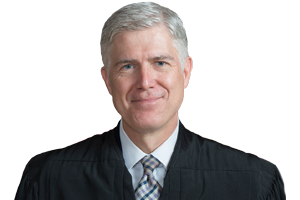
Neil Gorsuch 
Elena Kagan 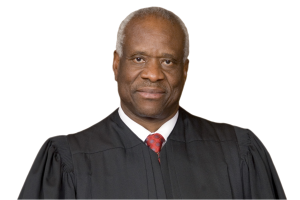
Clarence Thomas
Ruling 8-1, the Court vacated and remanded, holding that the existence of probable cause for Lozman’s arrest for disrupting a city council meeting did not bar his First Amendment retaliatory arrest claim under the circumstances of this case.
In an opinion authored by Justice Kennedy, the Court explained that its holding in this case was narrow. Lozman had conceded that probable cause for his arrest existed, but claimed that his arrest was in retaliation for his earlier protected speech, which took the form of an open-meetings lawsuit and public criticisms of city officials. However, the parties disagreed as to what standard should govern the allegations of retaliatory arrest. Lozman argued that the applicable precedent was Mt. Healthy City Bd. of Ed. v. Doyle, 429 U.S. 274 (1977), a civil case in which a teacher alleged retaliatory employment action in violation of his First Amendment rights, and the Court held that the employer could not be liable unless the alleged constitutional violation was a but-for cause of the employment termination. The City argued that Mt. Healthy should not provide the sole standard in this case, and that instead Hartman v. Moore, 547 U.S. 250 (2006), a criminal case which held that a plaintiff alleging retaliatory prosecution must show the absence of probable cause for the underlying criminal charge, should govern the case. But the Court responded that the question of what precedent applied to this issue need not be decided in a broad sense given that the facts of this case were so unusual in the retaliatory arrest context.
Indeed, Lozman did not sue the officer who made the arrest, and likely could not have succeeded on a retaliatory arrest claim against him as the officer seemed to have acted in good faith, and there was no indication that he had any knowledge of Lozman’s prior lawsuit or criticisms of the local government. Instead, Lozman alleged that city officials had implemented an official policy of intimidation against him due to his lawsuit and public statements criticizing them, and that their premeditated plan culminated in his arrest at the city council meeting. Further, in order for the city to be subject to liability under § 1983, Lozman would need to prove that he suffered harm as a result of an “official municipal policy,” distinguishing his claim from most cases alleging retaliatory arrest, which often involve on-the-spot judgements by individual police officers.
Given the uniqueness of this case in the retaliatory arrest context, along with the core First Amendment values at stake, the Court held that Lozman did not need to prove the absence of probable cause to maintain his retaliatory arrest claim. The Court also concluded that Mt. Healthy was the proper standard for assessing the retaliatory arrest claim on remand under these particular facts, but declined to address the requirements for proving such a claim in other contexts. The Court vacated the Eleventh Circuit’s ruling and remanded the case for further proceedings.
Justice Thomas filed a dissenting opinion. source
see also
Right to Record Government Officials Engaged in the Exercise of their Official Duties
To Learn More…. Read MORE Below and click the links Below
Abuse & Neglect – The Mandated Reporters (Police, D.A & Medical & the Bad Actors)
Mandated Reporter Laws – Nurses, District Attorney’s, and Police should listen up
If You Would Like to Learn More About: The California Mandated Reporting LawClick Here
To Read the Penal Code § 11164-11166 – Child Abuse or Neglect Reporting Act – California Penal Code 11164-11166Article 2.5. (CANRA) Click Here
Mandated Reporter formMandated ReporterFORM SS 8572.pdf – The Child Abuse
ALL POLICE CHIEFS, SHERIFFS AND COUNTY WELFARE DEPARTMENTS INFO BULLETIN:
Click Here Officers and DA’s for (Procedure to Follow)
It Only Takes a Minute to Make a Difference in the Life of a Child learn more below
You can learn more here California Child Abuse and Neglect Reporting Law its a PDF file
Learn More About Police, The Government Officials and You….
$$ Retaliatory Arrests and Prosecution $$
Anti-SLAPP Law in California
Freedom of Assembly – Peaceful Assembly – 1st Amendment Right
Supreme Court sets higher bar for prosecuting threats under First Amendment 2023 SCOTUS
We also have the Brayshaw v. City of Tallahassee – 1st Amendment – Posting Police Address
We also have the Publius v. Boyer-Vine –1st Amendment – Posting Police Address
We also have the Lozman v. City of Riviera Beach, Florida (2018) – 1st Amendment – Retaliatory Police Arrests
We also have the Nieves v. Bartlett (2019) – 1st Amendment – Retaliatory Police Arrests
We also have the Hartman v. Moore (2006) – 1st Amendment – Retaliatory Police Arrests
Retaliatory Prosecution Claims Against Government Officials – 1st Amendment
We also have the Reichle v. Howards (2012) – 1st Amendment – Retaliatory Police Arrests
Retaliatory Prosecution Claims Against Government Officials – 1st Amendment
Can You Annoy the Government? – 1st Amendment
Freedom of the Press – Flyers, Newspaper, Leaflets, Peaceful Assembly – 1$t Amendment – Learn More Here
Vermont’s Top Court Weighs: Are KKK Fliers – 1st Amendment Protected Speech
We also have the Insulting letters to politician’s home are constitutionally protected, unless they are ‘true threats’ – Letters to Politicians Homes – 1st Amendment
We also have the First Amendment Encyclopedia very comprehensive – 1st Amendment
Paglia & Associates Construction v. Hamilton – Public Internet Posts & Public Criticisms – Bad Reviews – 1st Amendment
Right to Record Government Officials Engaged in the Exercise of their Official Duties
Learn More About True Threats Here below….
Counterman v. Colorado – Supreme Court sets higher bar for prosecuting threats under First Amendment
We also have the The Brandenburg v. Ohio (1969) – 1st Amendment
CURRENT TEST = We also have the The ‘Brandenburg test’ for incitement to violence – 1st Amendment
We also have the The Incitement to Imminent Lawless Action Test– 1st Amendment
We also have the True Threats – Virginia v. Black is most comprehensive Supreme Court definition – 1st Amendment
We also have the Watts v. United States – True Threat Test – 1st Amendment
We also have the Clear and Present Danger Test – 1st Amendment
We also have the Gravity of the Evil Test – 1st Amendment
We also have the Elonis v. United States (2015) – Threats – 1st Amendment
Learn More About What is Obscene…. be careful about education it may enlighten you
We also have the Miller v. California – 3 Prong Obscenity Test (Miller Test) – 1st Amendment
We also have the Obscenity and Pornography – 1st Amendment
Mi$Conduct – Pro$ecutorial Mi$Conduct Prosecutor$
Attorney Rule$ of Engagement – Government (A.K.A. THE PRO$UCTOR) and Public/Private Attorney
What is a Fiduciary Duty; Breach of Fiduciary Duty
The Attorney’s Sworn Oath
Malicious Prosecution / Prosecutorial Misconduct – Know What it is!
New Supreme Court Ruling – makes it easier to sue police
Possible courses of action Prosecutorial Misconduct
Misconduct by Judges & Prosecutor – Rules of Professional Conduct
Functions and Duties of the Prosecutor – Prosecution Conduct
Standards on Prosecutorial Investigations – Prosecutorial Investigations
Information On Prosecutorial Discretion
Why Judges, District Attorneys or Attorneys Must Sometimes Recuse Themselves
Fighting Discovery Abuse in Litigation – Forensic & Investigative Accounting – Click Here
Criminal Motions § 1:9 – Motion for Recusal of Prosecutor
Pen. Code, § 1424 – Recusal of Prosecutor
Removing Corrupt Judges, Prosecutors, Jurors and other Individuals & Fake Evidence from Your Case
National District Attorneys Association puts out its standards
National Prosecution Standards – NDD can be found here
The Ethical Obligations of Prosecutors in Cases Involving Postconviction Claims of Innocence
ABA – Functions and Duties of the Prosecutor – Prosecution Conduct
Prosecutor’s Duty Duty to Disclose Exculpatory Evidence Fordham Law Review PDF
Chapter 14 Disclosure of Exculpatory and Impeachment Information PDF
Mi$Conduct – Judicial Mi$Conduct Judge$
Prosecution Of Judges For Corrupt Practice$
Code of Conduct for United States Judge$
Disqualification of a Judge for Prejudice
Judicial Immunity from Civil and Criminal Liability
Recusal of Judge – CCP § 170.1 – Removal a Judge – How to Remove a Judge
l292 Disqualification of Judicial Officer – C.C.P. 170.6 Form
How to File a Complaint Against a Judge in California?
Commission on Judicial Performance – Judge Complaint Online Form
Why Judges, District Attorneys or Attorneys Must Sometimes Recuse Themselves
Removing Corrupt Judges, Prosecutors, Jurors and other Individuals & Fake Evidence from Your Case
DUE PROCESS READS>>>>>>
Due Process vs Substantive Due Process learn more HERE
Understanding Due Process – This clause caused over 200 overturns in just DNA alone Click Here
Mathews v. Eldridge – Due Process – 5th, & 14th Amendment
Mathews Test – 3 Part Test– Amdt5.4.5.4.2 Mathews Test
“Unfriending” Evidence – 5th Amendment
At the Intersection of Technology and Law
We also have the Introducing TEXT & EMAIL Digital Evidence in California Courts – 1st Amendment
so if you are interested in learning about Introducing Digital Evidence in California State Courts
click here for SCOTUS rulings
Right to Travel freely – When the Government Obstructs Your Movement – 14th Amendment & 5th Amendment
What is Probable Cause? and.. How is Probable Cause Established?
Misuse of the Warrant System – California Penal Code § 170 – Crimes Against Public Justice – 4th, 5th, & 14th Amendment
What Is Traversing a Warrant (a Franks Motion)?
Dwayne Furlow v. Jon Belmar – Police Warrant – Immunity Fail – 4th, 5th, & 14th Amendment
Obstruction of Justice and Abuse of Process
What Is Considered Obstruction of Justice in California?
ARE PEOPLE LYING ON YOU?
CAN YOU PROVE IT? IF YES…. THEN YOU ARE IN LUCK!
Penal Code 115 PC – Filing a False Document in California
Penal Code 118 PC – California Penalty of “Perjury” Law
Federal Perjury – Definition by Law
Penal Code 132 PC – Offering False Evidence
Penal Code 134 PC – Preparing False Evidence
Crimes Against Public Justice
Penal Code 118.1 PC – Police Officer$ Filing False Report$
Spencer v. Peters– Police Fabrication of Evidence – 14th Amendment
Lying Cop or Citizen – PC 129 – Preparing False Statement or Report Under Oath
Penal Code 132 PC – Offering False Evidence
Penal Code 134 PC – Preparing False Evidence
Penal Code 135 PC – Destroying or Concealing Evidence
Lying Cop or Citizen – PC 129 – Preparing False Statement or Report Under Oath
Penal Code 141 PC – Planting or Tampering with Evidence in California
Penal Code 142 PC – Peace Officer Refusing to Arrest or Receive Person Charged with Criminal Offense
PC 146 Penal Code – False Arrest
Penal Code 148.5 PC – Making a False Police Report in California
Misuse of the Warrant System – California Penal Code § 170
Penal Code 182 PC – “Criminal Conspiracy” Laws & Penalties
Penal Code § 236 PC – False Imprisonment
Penal Code 664 PC – “Attempted Crimes” in California
Penal Code 31 PC – Aiding and Abetting Laws
Penal Code 32 PC – Accessory After the Fact
What is Abuse of Process?
What is a Due Process Violation? – 4th Amendment & 14th Amendment
What’s the Difference between Abuse of Process, Malicious Prosecution and False Arrest?
Defeating Extortion and Abuse of Process in All Their Ugly Disguises
The Use and Abuse of Power by Prosecutors (Justice for All)
Misconduct by Government Know Your Rights Click Here
Under 42 U.S.C. $ection 1983 – Recoverable Damage$
42 U.S. Code § 1983 – Civil Action for Deprivation of Right$
18 U.S. Code § 242 – Deprivation of Right$ Under Color of Law
18 U.S. Code § 241 – Conspiracy against Right$
Section 1983 Lawsuit – How to Bring a Civil Rights Claim
Suing for Misconduct – Know More of Your Right$
Police Misconduct in California – How to Bring a Lawsuit
How to File a complaint of Police Misconduct? (Tort Claim Forms here as well)
Deprivation of Rights – Under Color of the Law
What is Sua Sponte and How is it Used in a California Court?
Removing Corrupt Judges, Prosecutors, Jurors
and other Individuals & Fake Evidence from Your Case
Anti-SLAPP Law in California
Freedom of Assembly – Peaceful Assembly – 1st Amendment Right
How to Recover “Punitive Damages” in a California Personal Injury Case
Pro Se Forms and Forms Information(Tort Claim Forms here as well)
What is Tort?
Tort Claims Form
File Government Claim for Eligible Compensation
Complete and submit the Government Claim Form, including the required $25 filing fee or Fee Waiver Request, and supporting documents, to the GCP.
See Information Guides and Resources below for more information.
Tort Claims – Claim for Damage, Injury, or Death (see below)
Federal – Federal SF-95 Tort Claim Form Tort Claim online here or download it here or here from us
California – California Tort Claims Act – California Tort Claim Form Here or here from us
Complaint for Violation of Civil Rights (Non-Prisoner Complaint) and also UNITED STATES DISTRICT COURT PDF
Taken from the UNITED STATES DISTRICT COURT FOR THE EASTERN DISTRICT OF CALIFORNIA Forms source
WRITS and WRIT Types in the United States
How do I submit a request for information?
To submit a request send the request via mail, fax, or email to the agency. Some agencies list specific departments or people whose job it is to respond to PRA requests, so check their websites or call them for further info. Always keep a copy of your request so that you can show what you submitted and when.
Templates for Sample Requests
Incident Based Request: Use this template if you want records related to a particular incident, like the investigative record for a specific police shooting, an arrest where you believe an officer may have been found to have filed a false report, or to find out whether complaint that an officer committed sexual assault was sustained.
ACLU Download Word document | ACLU Download PDF
or from us Download Word document | or from us Download PDF
Officer Based Request: Use this template if you want to find any public records of misconduct related to a particular officer or if he or she has been involved in past serious uses of force.
ACLU Download Word document | ACLU Download PDF
or from us Download Word document | or from us Download PDF
The First Amendment Coalition also has some useful information to help explain the PRA process.
Sample Letter | SB 1421 & SB 16 Records
Appealing/Contesting Case/Order/Judgment/Charge/ Suppressing Evidence
First Things First: What Can Be Appealed and What it Takes to Get Started – Click Here
Options to Appealing– Fighting A Judgment Without Filing An Appeal Settlement Or Mediation
Cal. Code Civ. Proc. § 1008 Motion to Reconsider
Penal Code 1385 – Dismissal of the Action for Want of Prosecution or Otherwise
Penal Code 1538.5 – Motion To Suppress Evidence in a California Criminal Case
CACI No. 1501 – Wrongful Use of Civil Proceedings
Penal Code “995 Motions” in California – Motion to Dismiss
WIC § 700.1 – If Court Grants Motion to Suppress as Evidence
Suppression Of Exculpatory Evidence / Presentation Of False Or Misleading Evidence – Click Here
Notice of Appeal — Felony (Defendant) (CR-120) 1237, 1237.5, 1538.5(m) – Click Here
California Motions in Limine – What is a Motion in Limine?
Petition for a Writ of Mandate or Writ of Mandamus (learn more…)
PC 1385 – Dismissal of the Action for Want of Prosecution or Otherwise
Retrieving Evidence / Internal Investigation Case
Pitchess Motion & the Public Inspection of Police Records
Conviction Integrity Unit (“CIU”) of the Orange County District Attorney OCDA – Click Here
Fighting Discovery Abuse in Litigation – Forensic & Investigative Accounting – Click Here
Orange County / LA County Data, BodyCam, Police Report, Incident Reports,
and all other available known requests for data below:
SEARCH SB-1421 SB-16 Incidents of LA County, Oakland
California Senate Bill 16 (SB 16) – 2023-2024 – Peace officers: Release of Records
APPLICATION TO EXAMINE LOCAL ARREST RECORD UNDER CPC 13321 Click Here
Learn About Policy 814: Discovery Requests OCDA Office – Click Here
Request for Proof In-Custody Form Click Here
Request for Clearance Letter Form Click Here
Application to Obtain Copy of State Summary of Criminal HistoryForm Click Here
Request Authorization Form Release of Case Information – Click Here
Texts / Emails AS EVIDENCE: Authenticating Texts for California Courts
Can I Use Text Messages in My California Divorce?
Two-Steps And Voila: How To Authenticate Text Messages
How Your Texts Can Be Used As Evidence?
California Supreme Court Rules:
Text Messages Sent on Private Government Employees Lines
Subject to Open Records Requests
case law: City of San Jose v. Superior Court – Releasing Private Text/Phone Records of Government Employees
Public Records Practices After the San Jose Decision
The Decision Briefing Merits After the San Jose Decision
Rules of Admissibility – Evidence Admissibility
Confrontation Clause – Sixth Amendment
Exceptions To The Hearsay Rule – Confronting Evidence
Prosecutor’s Obligation to Disclose Exculpatory Evidence
Successful Brady/Napue Cases – Suppression of Evidence
Cases Remanded or Hearing Granted Based on Brady/Napue Claims
Unsuccessful But Instructive Brady/Napue Cases
ABA – Functions and Duties of the Prosecutor – Prosecution Conduct
Frivolous, Meritless or Malicious Prosecution – fiduciary duty
Section 832.7 – Peace officer or custodial officer personnel records
Senate Bill No. 1421 – California Public Records Act
Assembly Bill 748 Makes Video Evidence Captured by Police Agencies Subject to Disclosure as Public Records
SB 2, Creating Police Decertification Process and Expanding Civil Liability Exposure
The Right To Know: How To Fulfill The Public’s Right Of Access To Police Records
How Access to California Police Records
Los Angeles County Sheriff’s Department SB-1421 Records
SB1421 – Form Access to California Police Records
California Statewide CPRA Requests Submit a CPRA Request
Electronic Audio Recording Request of OC Court Hearings
CPRA Public Records Act Data Request – Click Here
Here is the Public Records Service Act Portal for all of CALIFORNIA Click Here
Police BodyCam Footage Release
Cleaning Up Your Record
Tossing Out an Inferior Judgement – When the Judge Steps on Due Process – California Constitution Article VI – Judicial Section 13
Penal Code 851.8 PC – Certificate of Factual Innocence in California
Petition to Seal and Destroy Adult Arrest Records – Download the PC 851.8 BCIA 8270 Form Here
SB 393: The Consumer Arrest Record Equity Act – 851.87 – 851.92 & 1000.4 – 11105 – CARE ACT
Expungement California – How to Clear Criminal Records Under Penal Code 1203.4 PC
How to Vacate a Criminal Conviction in California – Penal Code 1473.7 PC
Seal & Destroy a Criminal Record
Cleaning Up Your Criminal Record in California (focus OC County)
Governor Pardons –What Does A Governor’s Pardon Do
How to Get a Sentence Commuted (Executive Clemency) in California
How to Reduce a Felony to a Misdemeanor – Penal Code 17b PC Motion
PARENT CASE LAW
RELATIONSHIP WITH YOUR CHILDREN &
YOUR CONSTITUIONAL RIGHT$ + RULING$
YOU CANNOT GET BACK TIME BUT YOU CAN HIT THOSE IMMORAL NON CIVIC MINDED PUNKS WHERE THEY WILL FEEL YOU = THEIR BANK
Family Law Appeal – Learn about appealing a Family Court Decision Here
9.3 Section 1983 Claim Against Defendant as (Individuals) — 14th Amendment this CODE PROTECT$ all US CITIZEN$
Amdt5.4.5.6.2 – Parental and Children’s Rights“> – 5th Amendment this CODE PROTECT$ all US CITIZEN$
9.32 – Interference with Parent / Child Relationship – 14th Amendment this CODE PROTECT$ all US CITIZEN$
California Civil Code Section 52.1 – The Bane ActInterference with exercise or enjoyment of individual rights
Parent’s Rights & Children’s Bill of Rights
SCOTUS RULINGS FOR YOUR PARENT RIGHTS
SEARCH of our site for all articles relating for PARENTS RIGHTS Help!
Child’s Best Interest in Custody Cases
Are You From Out of State (California)? FL-105 GC-120(A)
Declaration Under Uniform Child Custody Jurisdiction and Enforcement Act (UCCJEA)
Learn More:Family Law Appeal
Necessity Defense in Criminal Cases
Can You Transfer Your Case to Another County or State With Family Law? – Challenges to Jurisdiction
Venue in Family Law Proceedings
GRANDPARENT CASE LAW
Do Grandparents Have Visitation Rights? If there is an Established Relationship then Yes
Third “PRESUMED PARENT” Family Code 7612(C) – Requires Established Relationship Required
Cal State Bar PDF to read about Three Parent Law –
The State Bar of California family law news issue4 2017 vol. 39, no. 4.pdf
Distinguishing Request for Custody from Request for Visitation
Troxel v. Granville, 530 U.S. 57 (2000) – Grandparents – 14th Amendment
S.F. Human Servs. Agency v. Christine C. (In re Caden C.)
9.32 Particular Rights – Fourteenth Amendment – Interference with Parent / Child Relationship
Child’s Best Interest in Custody Cases
When is a Joinder in a Family Law Case Appropriate? – Reason for Joinder
Joinder In Family Law Cases – CRC Rule 5.24
GrandParents Rights To Visit
Family Law Packet OC Resource Center
Family Law Packet SB Resource Center
Motion to vacate an adverse judgment
Mandatory Joinder vs Permissive Joinder – Compulsory vs Dismissive Joinder
When is a Joinder in a Family Law Case Appropriate?
Kyle O. v. Donald R. (2000) 85 Cal.App.4th 848
Punsly v. Ho (2001) 87 Cal.App.4th 1099
Zauseta v. Zauseta (2002) 102 Cal.App.4th 1242
S.F. Human Servs. Agency v. Christine C. (In re Caden C.)
Family Treatment Court Best Practice Standards
Download Here this Recommended Citation
Sanctions and Attorney Fee Recovery for Bad Actors
FAM § 3027.1 – Attorney’s Fees and Sanctions For False Child Abuse Allegations – Family Code 3027.1 – Click Here
FAM § 271 – Awarding Attorney Fees– Family Code 271 Family Court Sanction Click Here
Awarding Discovery Based Sanctions in Family Law Cases – Click Here
FAM § 2030 – Bringing Fairness & Fee Recovery – Click Here
Zamos v. Stroud – District Attorney Liable for Bad Faith Action – Click Here
Malicious Use of Vexatious Litigant – Vexatious Litigant Order Reversed
 Epic Criminal / Civil Right$ SCOTUS Help – Click Here
Epic Criminal / Civil Right$ SCOTUS Help – Click Here
 Epic Parents SCOTUS Ruling – Parental Right$ Help – Click Here
Epic Parents SCOTUS Ruling – Parental Right$ Help – Click Here
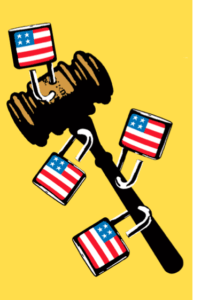 Judge’s & Prosecutor’s Jurisdiction– SCOTUS RULINGS on
Judge’s & Prosecutor’s Jurisdiction– SCOTUS RULINGS on
 Prosecutional Misconduct – SCOTUS Rulings re: Prosecutors
Prosecutional Misconduct – SCOTUS Rulings re: Prosecutors
Please take time to learn new UPCOMING
The PROPOSED Parental Rights Amendment
to the US CONSTITUTION Click Here to visit their site
The proposed Parental Rights Amendment will specifically add parental rights in the text of the U.S. Constitution, protecting these rights for both current and future generations.
The Parental Rights Amendment is currently in the U.S. Senate, and is being introduced in the U.S. House.
God leaves NO CHILD LEFT BEHIND, it’s the child who refuses to return to his Father!
Our Father is always available, never drunk, never lies, never allows any harm to his children… (a perfect father, hence the name God, the creator)
the harm that one may perceive is not harm but an awakening, if you join with him by asking for his help
pray with good intent in your heart, believe like you once believed in Santa! That means NO DOUBT, 100% PURE TRUST in him!
He never lies, He will deliver! God, through Jesus and only him will give you what you need when you need it!
Gospel Mt 11:28-30
Jesus said to the crowds:
“Come to me, all you who labor and are burdened, and I will give you rest. Take my yoke upon you and learn from me, for I am meek and humble of heart; and you will find rest for yourselves. For my yoke is easy, and my burden light.”
Trust God!
He Lives in Those Whom Invite Their Father In
Nothing Formed Against You Shall Prosper !
